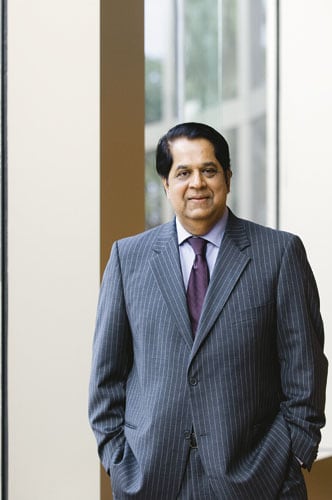
KV Kamath: 'Expect a Desirable Newness'
Chairman K.V. Kamath watches from the top floor as the new CEO overturns some of his legacies
On the timing of the transition
The first quality that you must have is a positive mindset. In the Indian context, it means a belief that the future is indeed bright. You need to re-examine the underpinnings of why it is bright. And then build your belief in that. That preparatory was done in the first quarter of this calendar year. If the transition had happend in the last quarter of last year (as it was supposed to happen), the slope would have significantly higher. The environment was in a state of flux and the confidence level of everybody around you was very low. That would have been a very difficult transition. By this first quarter of this year, those of us who wanted to see the positive side, could see the blue sky beyond. And the team aligned to that opportunity.
On the new team that’s been carefully hand-picked
Whatever mentoring had to be done was done a priori. Every person who has come into an office of responsibility was in a way groomed not exactly for that job but for that leadership.
It was easy for the team to come back and lead. Chanda was asked to handle one part of the business that she had not handled earlier. The stint in the corporate centre rounded off her grooming, as far as I was concerned. Then, there was Kannan who had worked as CFO in the life insurance subsidiary coming back as director. Ramkumar, whom we had tested earlier and had proven himself in HR, had come into the role a few months earlier.
Sandeep (Bakshi) had done several kinds of roles in the bank before he went out to build a great business in the general insurance side. The corporate side of the general insurance was already well developed and he took it forward. Bringing him back into retail would mean getting in a fresh mind and a different outlook. That is critical to a business — in the sense that you groom and mentor people to build leadership experience, but ensure that they have a different mind. Only then can you go to the next level. If you bring in clones of the people that you are replacing, it is possibly the worst thing that you can do.
On the initial preps
The first few months have entirely gone into planning. They have immersed themselves, gotten accepted and are able to contribute. It may be too early, but in the three to six month period, you will see desirable newness brought into the business by these new leaders.
On what constitutes desirable newness
Most of our businesses that we launched are about 8-10 years old. After a decade, it is almost impossible not to get to a situation where structures become stiff. They aren’t as flexible as they ought to be. A little bit of fat gets added in parts. People get set in their minds. And we sometimes tend to believe that this is the best way to run those products and processes. This was an opportunity to set right all these things.
Let me give you an example. About a year and a half earlier, we had started the process of trimming overheads. Now, we had accumulated fat and wastage in a whole range of activities. We just trimmed the opex. But they are realignments that also need to be done based on the areas that you want to do business.
On how he planned his transition
I learned from Mr. Vaghul that you cede complete authority and responsibility. That’s exactly what I did. There were a few board and committee meetings in May, which I had to attend. But by May 7, I was out of the country for more than a month. I managed to detach myself completely — something that I wanted to do. I made sure that there was nothing on the desk on May 1. Whatever scraps of paper there was, I dealt with that by May 7. I managed to remove myself from the equation for more than a month. By then the organisation had settled down. As a consequence, I did not have to suffer any withdrawal pangs.
(This story appears in the 14 August, 2009 issue of Forbes India. To visit our Archives, click here.)















